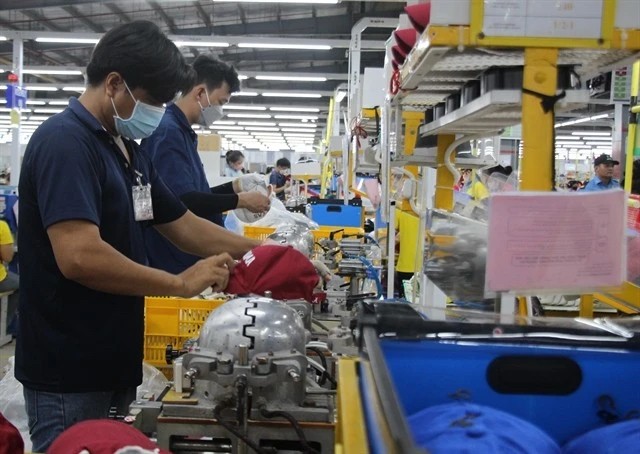4 activities that make strong medical school candidates in US
Aside from grades and MCAT scores, these things can help you stand out when applying to med school.
Volunteers working in soup kitchen
It is often said that grades and MCAT scores don’t get people into medical school, they keep people out. Without a good GPA and MCAT score, it is virtually impossible to secure a spot in medical school, but having good grades and test scores alone is not enough to ensure acceptance. Along with academics, premedical students should also engage in a number of activities that make their background compelling to admissions committees.
Clinical work
Extensive exposure to clinical medicine is arguably the most vital element of a medical school application, aside from strong grades and test scores. This can be volunteer work in a clinic or hospital or a paid position as a medical assistant or scribe. Contrary to popular belief, medical schools don’t want premedical students to participate in clinical work to learn medical science. The medical field is vast and the body of knowledge you need to know to practice medicine cannot be acquired by spending time as a shadow or medical assistant.
Aspiring doctors are expected to gain clinical exposure so they can learn more about the profession and make an informed decision before committing themselves to the long path of training as a physician. The best clinical opportunities are those that give applicants the chance to work alongside physicians and get a glimpse into the day to day lives of medical doctors.
Get involved in an area of medicine that encompasses a wide range of conditions and approaches to care. Specialties like internal medicine or emergency medicine for example, afford this more than radiology or orthopedic surgery. Another way to ensure breadth of exposure is by combining activities in the inpatient and outpatient settings.
 |
Source: US News and World Report
Service
Service to the underprivileged is highly valued on a medical school application. It demonstrates compassion and social responsibility, characteristics that are essential in the medical profession. There are myriad ways for premedical students to get involved in such experiences. Any activity that would allow you to give back to those who are disadvantaged could help you stand out.
Examples of service-based activities include volunteering at a soup kitchen, tutoring children from low-income backgrounds or helping adults with learning disabilities participate in sports. Instead of just choosing a program because a friend or classmate is doing it, find a service-based activity that you are passionate about. Look for government programs or non-profit organizations in your area that provide opportunities related to a cause you identify with and reach out to get involved.
 |
Source: CEO World
Leadership
Inpiduals who can take initiative and lead a group of people to solve problems are appealing to medical schools. It is not enough to just have a fancy title like president of a club or director of an organization to show leadership. You actually have to demonstrate that you were involved in activity where you were able to take initiative without somebody telling you, bring together a group of people and work as a team to solve a problem.
A few years ago, one of our premedical students established a campus-wide tutoring program for science majors at her university. She worked with a few dedicated peers to convince student government that such a program was necessary, lobbied the university for funding and led the launch of the program. When she was applying to medical school, many of her interviewers were impressed and asked her about this experience.
Research
Research is a great addition to any medical school application. Medical schools value research because it cultivates curiosity while teaching you to ask thoughtful questions and find answers on your own. Therefore, select a research opportunity that would give you the chance to engage in higher level activities such as study design, literature review and data analysis.
Any kind of research, whether it is laboratory-based, clinical or in the social sciences is acceptable so long as you are actively engaged in the process of asking questions and finding answers in a systematic and scholarly fashion.
It may be difficult to balance all of these activities in a busy premedical curriculum, but it is achievable with proper planning. You can bring together your passions and be more efficient by selecting activities that combine different elements listed above. For example, working at a clinic for the underserved offers clinical exposure and the opportunity to give to those who are less privileged at the same time. Taking this into account and demonstrating long-term commitment to each activity, you can maximize your time, learn and stand out on your application./.
( VNF/US News )
Recommended
 National
National
Vietnam News Today (Jun. 7): Prime Minister works with Estonian firms to accelerate projects in Vietnam
 National
National
Vietnam News Today (Jun. 6): Foreign Investment in Vietnam Surges in Five Months
 National
National
Vietnam News Today (Jun. 5): PM sets off for attendance at UNOC 3 in France, official visits to Estonia, Sweden
 National
National
Vietnam News Today (Jun. 4): Vietnam - Promising Candidate for Southeast Asia’s Next Powerhouse
 National
National
Shangri-La Dialogue 22: Vietnam Highlights Some Issues of Ensuring Stability in a Competitive World
 National
National
Vietnam News Today (Jun. 3): PM Pham Minh Chinh to Attend UN Ocean Conference, Visit Estonia, Sweden
 National
National
Vietnam News Today (Jun. 2): Vietnamese Trade Mission Sounds Out Business Opportunities in United States
 National
National
